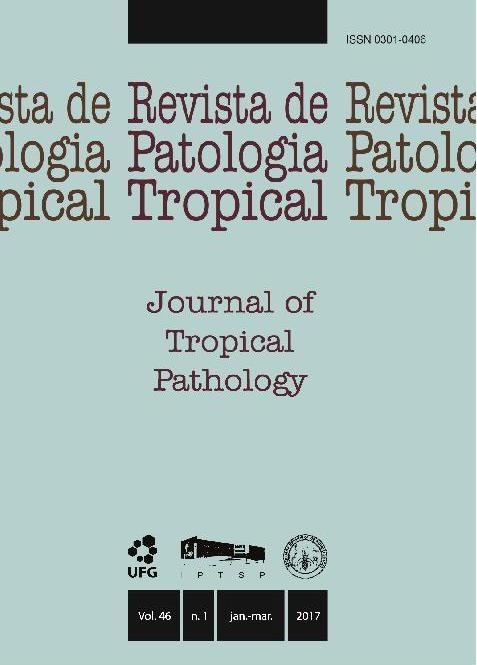INTESTINAL PARASITIC INFECTIONS IN A LOWINCOME URBAN COMMUNITY: PREVALENCE AND KNOWLEDGE, ATTITUDES AND PRACTICES OF INHABITANTS OF PARQUE OSWALDO CRUZ, RIO DE JANEIRO, BRAZIL
DOI:
https://doi.org/10.5216/rpt.v46i1.46293Keywords:
Parasitology, urban health, health literacy, neglected diseases.Abstract
Intestinal parasitic infections (IPIs) are present in Brazil from upper-to low-income communities, with varying infection estimates; however, they affect those living in urban and rural poverty more severely, without adequate access to consistently safe drinking water, sanitation, waste disposal, medical access and education. Estimates show the need for establishing infection prevalence and socioeconomic features, along with population knowledge, attitudes and practices (KAP) regarding IPIs. The purpose of this study is to
assess the prevalence and KAP regarding IPIs of residents of an urban low-income community (Parque Oswaldo Cruz/Amorim) of the Complexo de Manguinhos, Rio de Janeiro, Brazil.
The Lutz sedimentation technique was used for parasite detection (n=1,121) and, to obtain data on community KAP regarding IPIs, a KAP survey, adapted from Mello et al. was applied (n=505). An overall prevalence of 20.7% was detected with protozoa composing 92.9% (n=235) of the positive samples. Questionnaires revealed generally correct knowledge but with several inconsistencies, unawareness of the association between the etiological agent and the disease, and uncertainty regarding own knowledge of the subject. The population understood the importance of prevention and was willing to utilize prevention strategies despite being unsure of how to prevent infection. Further studies are required to investigate best practices
for improving health equity, community health empowerment and IPIs prevention in Rio de Janeiro, Brazil.
Downloads
Downloads
Published
How to Cite
Issue
Section
License
The manuscript submission must be accompanied by a letter signed by all authors stating the full name and email address, confirming that the material has not been published or is under consideration for publication elsewhere, and agreeing to transfer copyright in all media and formats for Journal of Tropical Pathology. The authors will not be paid for published articles. They are solely responsible for the content of those articles, even if the Editor holds the right to adjust them to the norms of the journal.
The reviewers will not be paid for the peer review process.

